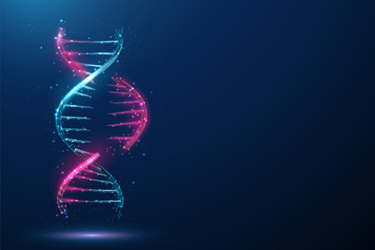Excision BioTherapeutics & Guide RNA

By Erin Harris, Editor-In-Chief, Cell & Gene
Follow Me On Twitter @ErinHarris_1

Excision BioTherapeutics is a clinical-stage biotech developing CRISPR-based therapies to cure viral infectious diseases. Recently, the FDA granted Fast Track designation for its CRISPR-based therapy, EBT-101, a dual-cut CRISPR-based gene therapy for the treatment of human immunodeficiency virus type 1 (HIV-1). EBT-101 is being tested in an ongoing Phase 1/2 trial to assess its safety and tolerability in adults (18 to 65 years old) with HIV-1 who are on continuous antiretroviral therapy with HIV RNA below the level of detection. I caught up with Excision’s CEO Daniel Dornbusch to dig into EBT-101 as well as Guide RNA (gRNA) and why it is critical to EBT-101’s success.
Briefly explain Excision BioTherapeutics and its mission.
Excision BioTherapeutics’ mission is to develop CRISPR-based therapies intended to cure viral infectious diseases and improve the lives of chronically ill people. Our foundational technologies were developed in the laboratories of Dr. Kamel Khalili at Temple University and Dr. Jennifer Doudna at the University of California, Berkeley. Our pipeline unites next-generation CRISPR nucleases with a novel, multiplexed gene editing approach to develop potentially curative therapies for HIV, Herpes Viruses, Hepatitis B, and other viral diseases. Our lead candidate, EBT-101, is currently being evaluated in Phase 1/2 clinical trials for the treatment of human immunodeficiency virus type 1 (HIV-1).
Briefly explain EBT-101 HIV AAV9 Cas9 dual gRNA Therapeutic.
EBT-101 is a unique in vivo CRISPR-based therapeutic designed to cure HIV by excising large sections of integrated proviral HIV DNA. The construct includes a CRISPR nuclease and two gRNAs which are delivered to cells harboring HIV by an adeno-associated virus (AAV), specifically serotype 9 (AAV9). Importantly, the gRNAs in EBT-101 target sites in the HIV genome, which has very different sequences from the human genome, minimizing the chances for off-target effects. While for most people, treatment with antiretroviral therapy (ART) halts HIV’s replication and progression to AIDS, the virus remains latent in infected cells and will begin replicating if a patient stops ART.
Talk us through the recent FDA Fast Track Designation for the investigational CRISPR based gene therapy, EBT-101, to cure HIV-1. What are the expectations of its Fast Track Designation?
We are pleased to receive Fast Track designation from the US Food and Drug Administration for EBT-101. Fast Track designation is reserved for new drugs addressing serious conditions with significant unmet medical needs. The designation puts Excision in a strong position for additional future designations including accelerated approval and priority review. This speaks to the desire from the HIV community as well as regulators to find a cure for HIV. Because of scientific advances like CRISPR, it may finally be within our reach.
More than 39 million people are living with HIV worldwide today, and as many have unfortunately died since the virus emerged decades ago. People living with HIV continue to face stigma and stress, as well as significant side effects and comorbidities from long-term ART therapy.
Explain gRNA and why it’s critical to EBT-101’s success.
gRNAs are short RNA sequences which bind to specific sequences of DNA. Guide RNAs direct and bind CRISPR nucleases to generate their genetic changes. Excision’s unique approach leverages two gRNAs to guide CRISPR nucleases to multiple sites in each integrated proviral HIV genome in a cell. This allows us to edit or excise large sections of proviral DNA. The alternative with one gRNA would only allow the CRISPR nuclease to make small edits in the integrated proviral DNA, which are quickly repaired by the viral escape mechanism and would not lead to cures. EBT-101 has undergone extensive safety studies and Excision has not observed any off-target effects in any of our pre-clinical studies greater than the noise of the assays. This focus on safety is a key aspect of Excision’s approach and pipeline programs.
